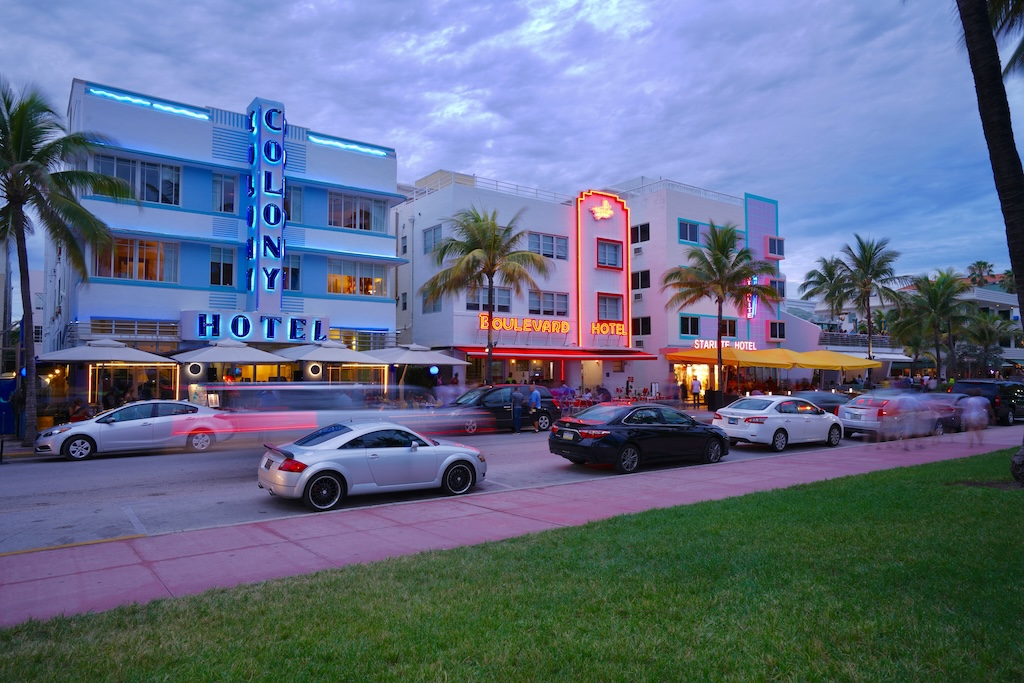

Opening a hotel is a significant financial undertaking that requires meticulous business planning and strong financial management. There are a lot of expenses across different channels, and careful organization of what is needed will pay dividends in the long run. It's very difficult to set a direction for your business if you don't plot the trajectory. A well-structured financial plan ensures that the hotel is not only set up for success, but also capable of building and maintaining long-term profitability.
Below, we explore key aspects of a hotel's finances by concentrating on the following points:
1) Business and Financial Planning, including: Investment and Funding
2) Budgeting
3) Revenue Models
4) Break-Even Analysis
Each category below comes with some quick bullet points to quickly digest and understand the main points to give an overview of the crucial items to examine.
Before launching a hotel, securing adequate funding is essential. You can't create the hotel if you don't have the funds to pay for it, obviously, and the initial investment is massive. For starters, it covers property acquisition, construction, interior design, technology, and staffing.
Here are several ways to finance a hotel:
If you have the ability to use your own funds, it is beneficial as you are not beholden to another source; however, you are also using personal capital, and that can be risky. It obviously depends on if you have savings to begin, and then it depends on how much of your savings it will eat up.
Here are some bullet points regarding self-funding the hotel:
Ideal for entrepreneurs who have substantial personal savings or assets.
Offers complete control over business decisions without external financial obligations.
Minimizes debt but can be risky if the entire financial burden falls on the owner.
This is a more traditional route for getting investment dollars for your hotel project. Banks and financial institutions can provide a lot of potential capital for your project, but they come with strings attached, and you have to be aware of the implications.
Here are some important points to consider when looking into the more traditional financing options:
Traditional financing option with structured repayment plans.
Requires a strong business plan, creditworthiness, and collateral.
Interest rates and loan terms vary based on the lender and economic conditions.
Another route for getting funds for your establishment is via investor partnerships. It's similar to going the more traditional route, but if you go this route there will surely be deals to cut away from eventual profits that you owe the investors.
Involves securing investments from individuals or firms looking for returns.
Equity investors may expect a share in profits or business control.
Attracting investors requires a compelling business plan with strong growth potential.
Yet another option for opening your hotel is to associate yourself with a particular brand. There are pros and cons here as well, but essentially you are getting the support of the corporate entity and the recognition of being a known hotel company in the area.
Partnering with established hotel brands (e.g., Marriott, Hilton) provides funding and operational support.
Franchisees pay fees but benefit from brand recognition and marketing support.
Reduces risks associated with an independent hotel launch.
When it comes to financing there is a last option of applying for local and federal grants and tax incentives. A solid business plan that presents how the inclusion of your hotel will impact the local economy positively may end up landing you some extra financial assistance. Every penny counts, so it's essential to consider all possible options.
Some governments provide financial assistance for hospitality projects that contribute to tourism and job creation.
Researching available programs in the chosen location can help secure additional funding.
As a final thought regarding financing, a well-balanced funding approach ensures financial stability while mitigating risks.
We must consult our means rather than our wishes.
- George Washington, 1st President of the United States
Budgeting accurately is crucial for avoiding financial shortfalls during hotel development. Here are key cost components to consider:
First things first, you have to have a place to put the hotel if it doesn't already exist. Do you have a property? Does the land need to be developed?
Cost of purchasing or leasing land or an existing building.
Legal fees, property taxes, and due diligence expenses.
Site preparation, permits, and zoning compliance.
If you have the property settled, do you need to construct a new hotel? Or is there a building present on the property that needs to be renovating? These are the key points to make sure you have covered:
Structural development, architectural design, and engineering costs.
Materials, labor, and contractor fees.
Compliance with safety, environmental, and accessibility standards.
What will your hotel look like on the inside? The design of the hotel should be in line with the brand guidelines you set. Here are some key items to keep in mind:
Guestroom furniture, décor, and fixtures.
Common areas, lobby, conference rooms, and F&B outlets.
Landscaping and exterior aesthetics.
Do you have a recruitment plan in place? What kind of staff are you looking to hire? The company culture you have is crucial, as it's the fabric of your business and how people will feel when they are staying at your hotel.
Recruitment and onboarding of key personnel, including management, housekeeping, and front-desk staff.
Salaries, benefits, and ongoing training programs.
Compliance with local labor laws and employment regulations.
Having effective tech and business infrastructure in place will make a huge difference in the efficiency and performance of your business. These are some key points to consider when looking at the business operations and foundational elements of how the hotel is run.
Property Management System (PMS) for reservations and billing.
High-speed internet, security systems, and smart room technology.
Customer relationship management (CRM) tools and digital marketing software.
Marketing and branding is also fundamental to the overall success of the hotel. You'll want to look at the many online resources to see which ones are essential, such as: a website, Google My Business Profile, and social media platforms.
Website development, search engine optimization (SEO), and social media presence.
Advertising, promotional campaigns, and partnerships with travel agencies.
Loyalty programs and special offers to attract customers.
Creating a detailed budget with contingency plans ensures that unexpected costs do not derail the project.

A hotel’s revenue model extends beyond room bookings. Diversifying income streams helps maximize profitability. Here are key revenue components:
A very important detail to get in order is the pricing for your hotel. How much will you charge per room? What are the high-seasons where you can charge more or low-seasons when you should be lowering prices? These are essential items to define.
Dynamic pricing strategies based on demand, seasonality, and competition.
Offering different room categories (standard, suites, executive) to cater to varied budgets.
Upselling services such as early check-ins, late check-outs, and premium room features.
Is your hotel going to offer F & B Services? Will there be hot foods that require a kitchen and all of the specs that come with that or will you only offer foods that don't requite preparation and snacks?
Restaurants, cafés, and bars offering in-house dining experiences.
Room service and minibar options to increase guest spending.
Catering services for events and corporate clients.
Do you plan to have space dedicated to hosting conferences and events at your hotel? If so, you will obviously need a decent amount of space for people to plan and host their events there. It will also be important to consider the pricing for these particular amenities.
Renting out meeting rooms, banquet halls, and conference spaces.
Hosting corporate events, weddings, and social gatherings.
Offering packages that include catering, audiovisual equipment, and event planning services.
Does your hotel offer amenities? What are the amenities and are there services you offer that can be upsells for your clients while they enjoy their stay at your establishment?
Spa, gym, and wellness centers attracting guests seeking relaxation.
Recreational facilities such as swimming pools, tennis courts, or guided local experiences.
Membership programs for local residents to generate additional revenue.
Lastly, regarding amenities and different services you can offer, will you have any retail, laundry, valet or other services available? These will depend heavily upon the type of hotel you are opening and the standard of services that will be necessary to compliment the rest of your hotel's offerings.
Laundry, valet parking, and concierge services.
Collaborations with local tour operators, transportation providers, and experience-based services.
Retail shops or souvenir stores within the hotel premises.
A well-structured revenue model enhances financial sustainability and provides multiple income streams to balance seasonal fluctuations.
Understanding profitability timelines is essential for managing expectations and financial planning. Break-even analysis and Return on Investment (ROI) projections help estimate when the hotel will start generating profits.
Most people don't plan to fail they fail to plan.
- John L Beckley, Author
The break-even point is when total revenue equals total costs. This is going to be a major milestone for your business, as if your expenses are higher than your income, you will be losing money. If you can get to a point of breaking even, at least you are maintaining the business. It goes without saying that the ultimate goal is to become profitable, but this is a crucial milestone.
Here's how to calculate it:
Determine Fixed Costs: Property rent, loan repayments, salaries, utilities, and maintenance.
Identify Variable Costs: Housekeeping, amenities, F&B inventory, and marketing expenses.
Calculate Average Revenue per Available Room (RevPAR):
RevPAR = (Total Room Revenue) / (Total Available Rooms)
Compute Break-even Occupancy Rate:
Break-even occupancy = (Fixed Costs) / (Average Revenue per Room Night – Variable Cost per Room)
A lower break-even occupancy rate indicates quicker profitability and reduced financial risk.
ROI analysis helps investors assess the financial viability of the hotel.
The formula for ROI is:ROI = (Annual Profit / Total Investment) × 100
Key factors influencing ROI:
Occupancy Rate Trends: Higher occupancy leads to faster returns.
Operational Efficiency: Cost control and effective management impact profitability.
Market Demand & Pricing Strategies: Competitive pricing and strong brand positioning enhance revenue potential.
Debt Repayment & Interest Costs: Managing loan repayments efficiently reduces financial pressure.
Most hotels aim to achieve ROI within 5-10 years, depending on investment scale, market conditions, and financial strategies.
A robust business and financial plan is the backbone of a successful hotel venture. By securing the right funding, managing budgets effectively, diversifying revenue streams, and understanding financial projections, hotel owners can set a strong foundation for profitability. Careful financial planning ensures long-term sustainability, allowing the hotel to adapt to market changes while delivering an exceptional guest experience.

Here are nine key points you should consider before opening a hotel. We’ll go into each point more in depth in separate articles linked here.

Explore key elements of market research and feasibility studies for opening a hotel: define your target audience, location and more.
Fill out the form below to request more information.

